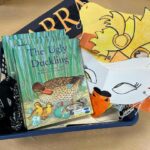
- What is a worldview? A person’s worldview refers to the set of beliefs, values, and perspectives that help shape how a person views and interacts with people around them and the world at large. People’s beliefs and perspectives are largely a product of what they’ve been taught and been exposed to, which is why it’s so important to teach children how to think, not what to think.
- How would you describe your worldview? This is a really insightful question that has caused me to reflect and ponder about my values, beliefs, and perspectives. I feel like sometimes we can go through life without really thinking about what we really believe until someone asks us… or, until we meet someone that believes differently than us.
My Worldview:
I believe that people are inherently good and have the potential to grow, improve, and overcome challenges. I view the purpose of life as a journey of learning, growth, and creating meaningful relationships. Through these connections, we can help one another navigate life’s difficulties and share in its joys.
I focus on personal responsibility and actions to promote change, striving to be the change I wish to see in the world. I believe that family and friendships are founded on mutual trust, respect, and open communication. These relationships enhance our lives and give meaning to life. I view education as a powerful tool for empowerment and self-sustainment, providing individuals with the skills and knowledge they need to thrive.
I also believe that all cultural and spiritual practices should be valued and respected, and that learning about different cultures helps foster understanding and empathy. I have seen firsthand how misunderstandings about cultures or practices can breed fear and prejudice, which is why I advocate for education and communication to promote unity and understanding.
Regarding environmental concerns, I believe that even small scale education can lead to significant change. By informing individuals and communities, we can make a collective impact on preserving and protecting the planet for future generations.
3. While thinking about your own worldview, also consider the impacts of your ethnocultural, socioeconomic, geopolitical, and spiritual identities.
I think my worldview has been impacted by the fact that I have lived a relatively privileged life. I have never been restricted to any type of freedom to education, housing, job or anything due to my race, gender, or social status. The country I live in is prosperous and treats women fairly, and I live at a time in the world when most faiths are respected and valued. I think my worldview would be altered dramatically if any of these factors were changed.
4. Why, as a teacher, is it important to be aware of your own worldview, as well as those of your students and school community?
I think the worldview I bring in to the classroom and school community will impact the decisions I make regarding how to teach the curriculum, and how I practice classroom management. It will also influence how I communicate and establish relationships with students and colleagues. It will be important for me to reflect on my worldview and make sure that any biases I have do not shape the expectations or treatment of any student.
5. What can you do, as a teacher, to ensure that your worldview does not impede the success of the diversity of learners in your classroom?
As a teacher, it is important for me to understand that students will be coming to the classroom with a variety of beliefs, values, and perspectives. Although my worldview is important, every one of my students’ worldviews are also important, and I will strive to create and maintain an environment where diversity is celebrated. Together, my students and I can learn about each others’ backgrounds, cultures and beliefs. As a teacher, I can model empathy and understanding for our differences, and use materials that embrace diversity. I think it’s important to teach children how to think and not what to think; to present the material and allow them to come to their own conclusions without me forcing my opinion on them. I think this is particularly vital when it comes to sensitive subjects. I will strive to create a classroom environment that embraces open mindedness and respect for differing opinions. I will teach my students that it’s alright if someone does things differently than they do. In essence, I want all the students in my teaching journey to know that they are in a safe space with their varying worldviews.
The first of the University of Victoria’s 12 Teacher Competencies states that we “develop an awareness of your worldview and how this relates to others’ worldviews“. Reflecting on my worldview has helped me actually realize what it is, and how important it is to allow others to embrace their differing worldviews as well.




